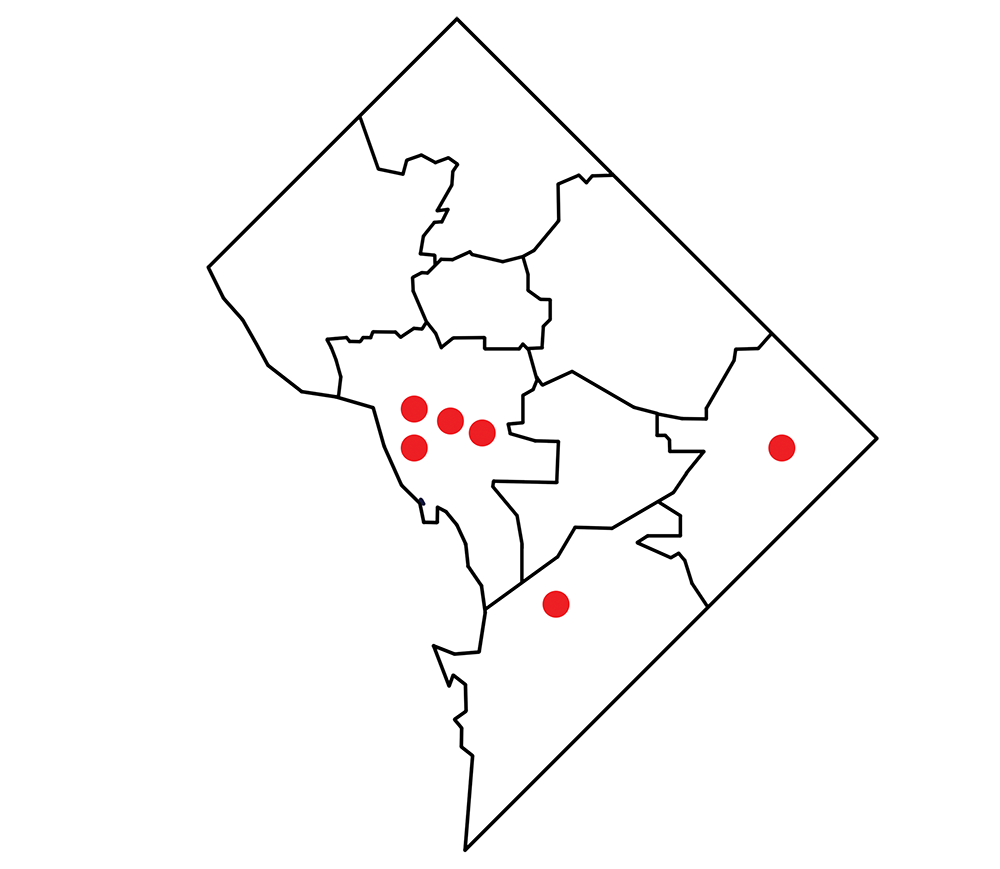
On Jan. 15, the No Taxpayer Funding for Abortion Act passed 22-12 in front of the House Judiciary Committee. Should the act pass in the Senate, it would deny D.C. the right to use its tax dollars to pay for certain women’s health services and funding for health benefits plans that cover abortion.
“This bill is a monument to autocracy and a mockery of American democracy. Not only would this bill harm the women of the United States, it would make matters even worse for the women of the District of Columbia by also eliminating part of the local government’s authority to regulate its own affairs and spend its own funds,” Del. Eleanor Holmes Norton (D-D.C.) said in a press release issued Sunday.
Kelly Thomas (SFS ’15), treasurer of GU Right to Life, defended the act, citing it as Congressional representation of constituents’ interests across the country. According to a national CNN poll conducted in April, 61 percent of Americans oppose federal funding for abortions.
“I think Congress is ultimately a representation of constituencies across the country, and what they are doing with this bill is protecting its constituents from paying for a service that they find morally abhorrent,” Thomas said.
According to Adrienne Schreiber (COL ’05), a spokesperson for Planned Parenthood of Metropolitan Washington, D.C, the act speaks to a much larger issue in the District of an uneven level of awareness of reproductive services
“The biggest question is mostly access. People just don’t know that they can come here for just about anything they need. It’s patient education first and foremost that needs to be addressed,” Schreiber said.
Wards 7 and 8 east of the Anacostia River are some of the city’s most underserved areas when it comes to accessing basic healthcare needs, with HIV rates of 2.6 and 3.1 percent respectively, according to data from the D.C. Department of Health.
“There’s been a big push in the last few years to get the word out that you don’t need to pay for HIV testing and condoms in the District, there are so many places that offer these services, and it’s not just in Northwest, it’s all over the District. Every single Ward has community health centers whose job it is to offer these services,” Schreiber said.
Schreiber noted, however, that disparities in awareness exist not only across locations but also across education levels.
“Places like Georgetown and Foggy Bottom — those students have access to a lot more information than a 14-year-old who’s growing up in Anacostia; the resources are very different from place to place. Absolutely there’s that disparity, and that’s what community health centers like Planned Parenthood are looking to bridge,” Schreiber said.
Access to contraceptive services is often a sticking point between liberals and conservatives on the issue of how to best educate women living in low-income, often minority areas of the District.
Laura Narefsky (COL ’14), president of H*yas for Choice, said that while ensuring access to a wide range of reproductive health services is vital, education for both men and women is essential to stemming the problem
“I think a lot of education starts early. This is a problem not just in D.C., but that we don’t have comprehensive sex ed in our school systems. You’re starting with a population of young people, men and women, who were never taught how to take care of themselves, who were never taught about safe sex, how to communicate with partners and never taught what their options were,” Narefsky said.
For pro-choice advocates like Narefsky, the pro-life movement has taken stances that are ultimately harmful to a woman’s ability to access essential health services.
“If you want to take a stance on pro-life, you need to actually take care of the people who are living, and I think that’s what members of Congress just don’t understand when they try and pass these laws saying that ‘Because I’m pro-life I want to defund Planned Parenthood.’ If women can’t get mammograms, that’s not being pro-life, that’s being anti-women,” Narefsky said.
Thomas directly countered the claim that denying women access to certain services makes pro-life advocates anti-women.
“Access to reproductive health has become sort of the symbol of the feminist movement. I think in doing that it turns anyone that’s pro-life into being anti-women, and that’s doing a huge injustice to women that don’t think the only answer is contraception or abortion,” Thomas said.














